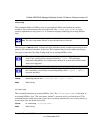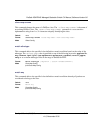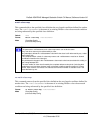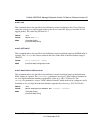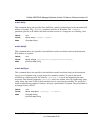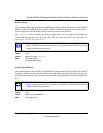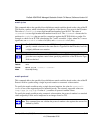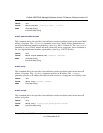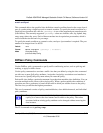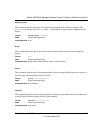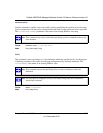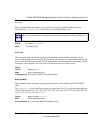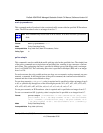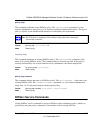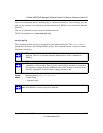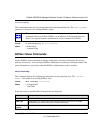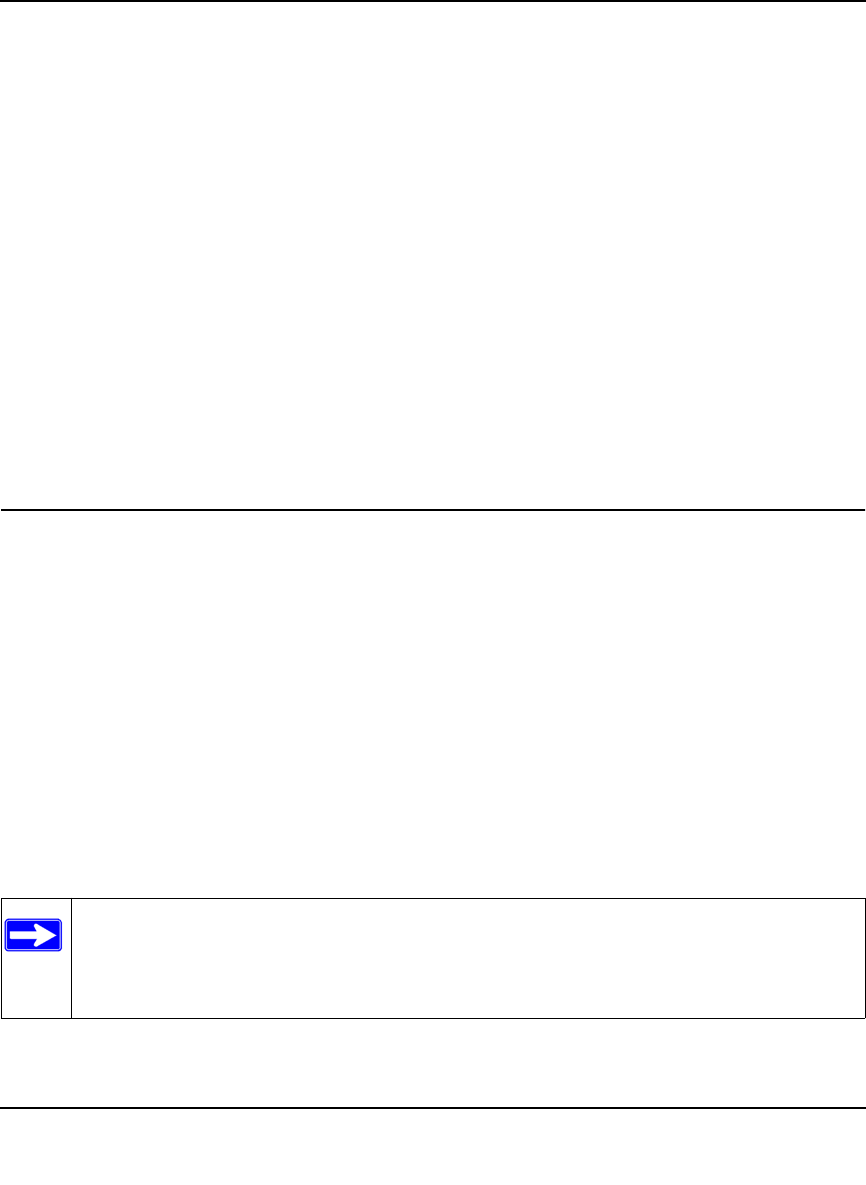
ProSafe XSM7224S Managed Stackable Switch CLI Manual, Software Version 9.0
Quality of Service (QoS) Commands 5-20
v1.0, November 2010
match srcl4port
This command adds to the specified class definition a match condition based on the source layer 4
port of a packet using a single keyword or numeric notation. To specify the match condition as a
single keyword notation, the value for <portkey> is one of the supported port name keywords
(listed below). The currently supported <portkey> values are: domain, echo, ftp, ftpdata, http,
smtp, snmp, telnet, tftp, www. Each of these translates into its equivalent port number, which is
used as both the start and end of a port range.
To specify the match condition as a numeric value, one layer 4 port number is required. The port
number is an integer from 0 to 65535.
DiffServ Policy Commands
Use the DiffServ policy commands to specify traffic conditioning actions, such as policing and
marking, to apply to traffic classes
Use the policy commands to associate a traffic class that you define by using the class command
set with one or more QoS policy attributes. Assign the class/policy association to an interface to
form a service. Specify the policy name when you create the policy.
Each traffic class defines a particular treatment for packets that match the class definition. You can
associate multiple traffic classes with a single policy. When a packet satisfies the conditions of
more than one class, preference is based on the order in which you add the classes to the policy.
The first class you add has the highest precedence.
This set of commands consists of policy creation/deletion, class addition/removal, and individual
policy attributes.
The CLI command root is policy-map.
Default none
Format match srcl4port {<portkey> | <0-65535>}
Mode Class-Map Config
Ipv6-Class-Map Config
Note: The only way to remove an individual policy attribute from a class instance within
a policy is to remove the class instance and re-add it to the policy. The values
associated with an existing policy attribute can be changed without removing the
class instance.



